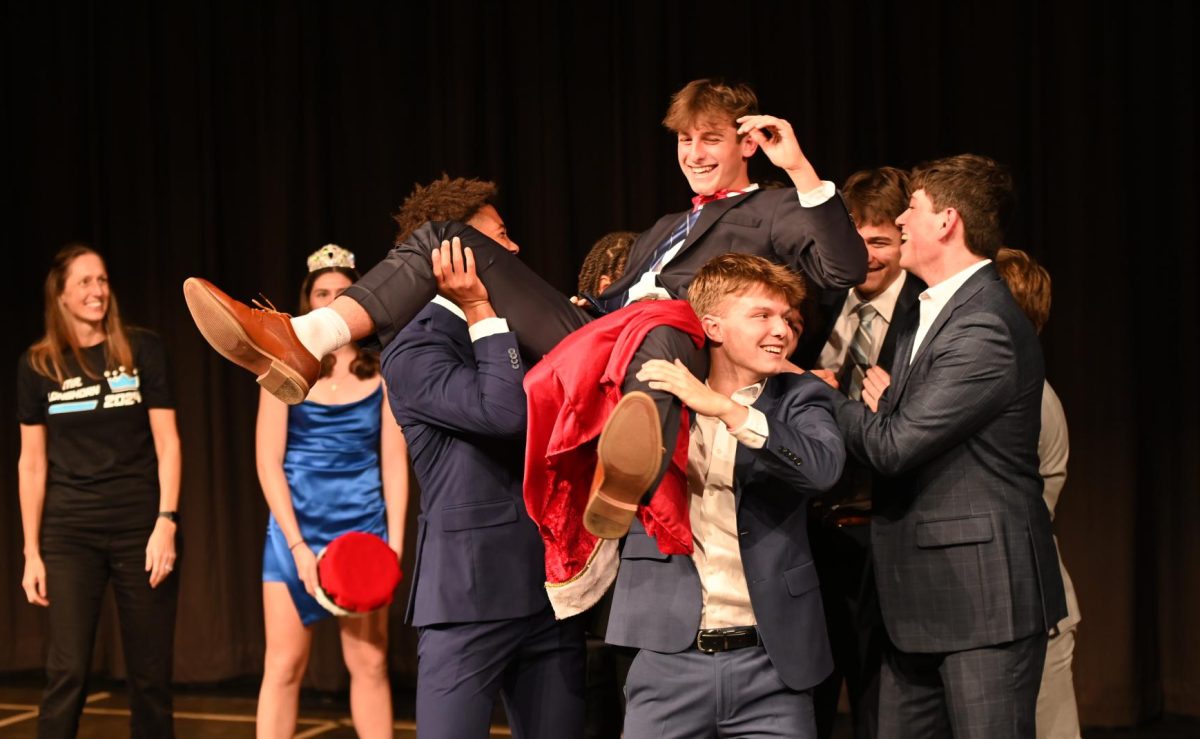African-American history is American history. There is no doubt that our curriculum, and even the way we interpret the past, does not reflect that truth or even a mere semblance of it. The teaching of African-American history must transcend slavery and civil rights––especially because these two subjects are frequently taught in a flawed way. While these are indubitably paramount moments in the course of history, they are not the only moments deserving of our attention. Such a selective education of African-American history is a disservice to humanity because it renders us unable to progress with such an absence of an accurate foundation of knowledge. Students have already faced, and will continue to face, the significant harm of inadequate content unless a change is made. In the name of progress and justice, education must be reformed to ensure an accurate teaching of history–all history.
“I want to be able to learn my culture, my background and to know where I came from because yes, I am African-American, but there is more to me. There’s a deeper past; there are so many things that I want to know that I can’t because it’s not being taught in schools,” junior Bri Davis said. “Yes, we were in it. But in your history, we were deprived [and] controlled, all these things. But where is our history?”
Necessary content about African-American history is missing in action, creating inaccuracies and breeding ignorance in our classrooms. In an analysis of social studies curriculum by state conducted by the Southern Poverty Law Center, a letter grade was assigned to each state, “grading” how they studied the Civil Rights movement. Missouri was among 19 other states who received an ‘F’ as their grade. These states failed to mention the Civil Rights Movement in state-level curriculum or did so in such a minute manner that it had to be disregarded. Missouri’s Department of Elementary and Secondary Education released course curriculum for grades six through 12 fails to mention the Civil Rights Movement once in the entire 42 page document of standards. The issue doesn’t begin and end here, however. The implications of not teaching African-American history are devastating to students and society.
“At the end of the day, it’s really unfair because all we talk about is slavery. We don’t talk about the accomplishments or achievements or the growth. It’s always about how black people were controlled or didn’t have the right to vote. When I sit in class and you talk about slavery, every time we do a unit on it or talk about it, I don’t want to be in the classroom,” Davis said. “I want to stand outside the classroom until we’re done with the entire unit. I’ve heard it all for almost 12 years of school, and I’ve heard the same thing over and over again. I’m tired of [being looked at when people think], ‘oh, they know all about this,’ and guess what, yeah I do but I don’t want to anymore. I want them to know that it hurts when they don’t put any effort to help me learn more than just slavery.”
Whitewashed curriculum merely continues trends ingrained in our whitewashed world. It harms students––white students––who are not given the chance to think critically of their own heritage and recognize the empire of mistakes that create the cracked foundation of American culture today. It harms all students who aren’t given an accurate teaching of their history and the wrongdoings of America, students who are brainwashed into believing in American excellence and ignoring American immoral past. Most importantly, it harms African-American students who are robbed of the chance to learn about their own culture and history. Teaching the bare minimum of Black history as we see too often today paints the fallacious portrait that African-American history starts with slavery and ends with the words “I have a dream.” This notion eviscerates an entire culture, centuries of tradition and millions of revolutionary individuals who are folded into the torn pages of a history book that will never be taken off the shelf.
We need to do better. Education can be reformed. Curriculum can be altered. Perspectives must be changed. It’s not a question of how we can do this, but a question of how fast we can do this. African-American culture and history must be incorporated into all aspects of the classroom. English teachers can encourage students to read books by African-American authors. Science classes can note the accomplishments and contributions of African-American scientists. History––a no-brainer––can work to trace the evolution of Black culture from its roots to today, teach a more nuanced look at African-American life in America, and teach parts of Africa American history that are not slavery and the Civil Rights Movement. Math teachers can look at the legacies of African-American mathematicians, compare the rates of pay for African-Americans to White Americans and look at the consequent income inequalities. With the internet and wealth of resources at the fingertips of any teacher, there is no reason for African-American history to not be taught.
At the district level, social studies curriculum is being reformed for upcoming school years. One of the goals of the rewrite is to incorporate more minority voices.
“In the curriculum writing, we have a checklist to ensure that diverse voices are being heard, paying more attention to women’s history, Latino history, etc. It’s more intentional this time to ensure that we’re incorporating a variety of voices. I think that for a lot of teachers––because we have a big workload––you find your niche and keep learning more about what you’ve been teaching,” social studies teacher and curriculum writer Kristen Collins said. “Now, we have a lot more learning to do, but the district is going to support our professional development with each other and bring in more people to help us. The district is being intentional in ensuring that we have the support to help us in terms of including minority voices. We’re doing much better than we have. We’re not perfect. We’re never going to be perfect, but we’re getting better.”
Progress has already begun. With curriculum in the classroom changing, it’s imperative to recognize the burden we continue to carry within ourselves. We’re cognizant of the issue and aware of the injustices that have manifested our realities. Methods of change exist, and we need to take the first steps in the marathon to reach justice. Enabling change starts today and will never end. The time to act is now, and the burden of doing so is only growing heavier.

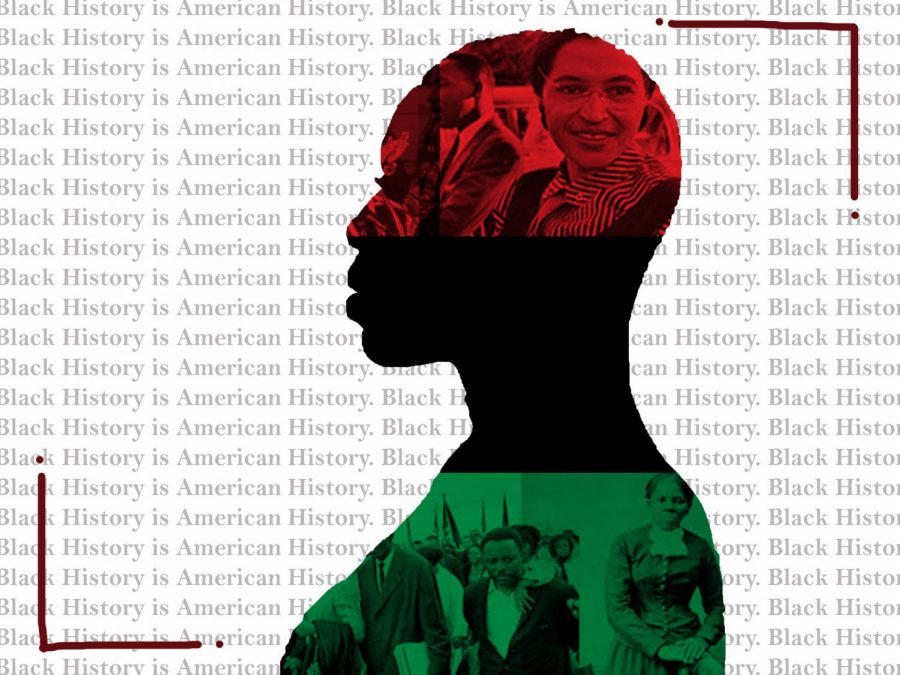

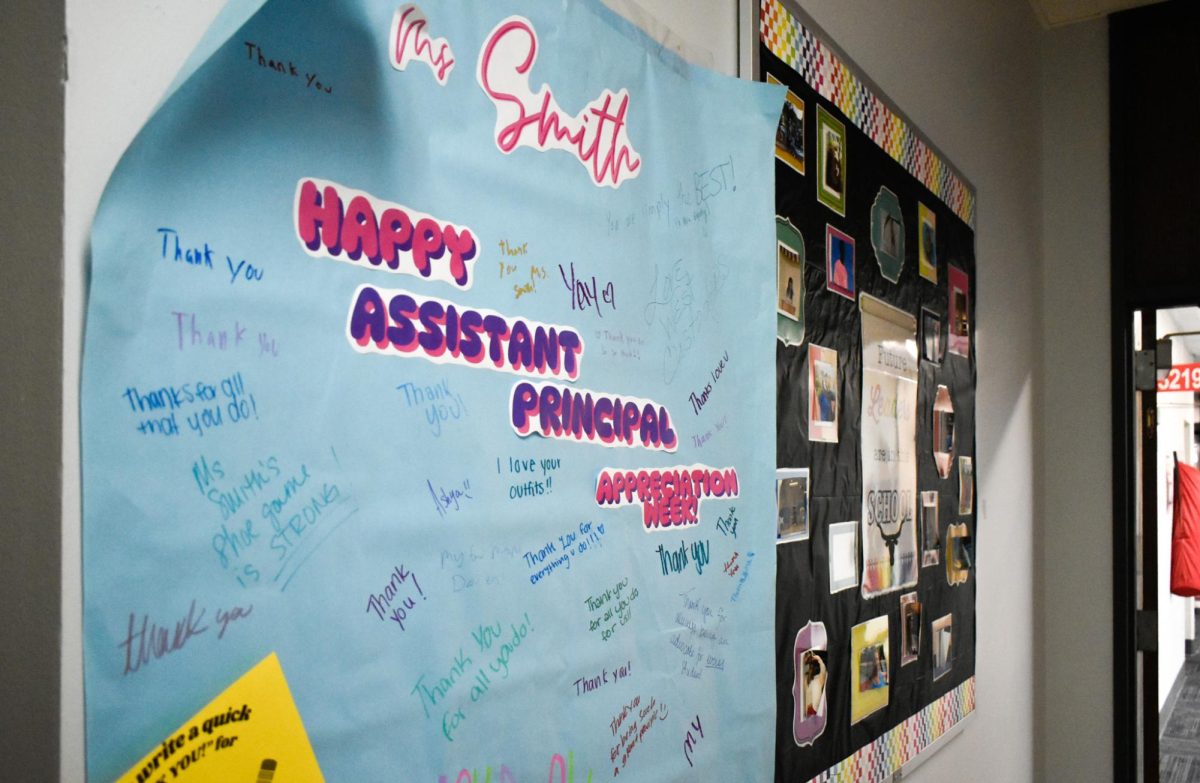
![Red, white and blue, the American flag holds the values of our democracy. The fight that we once endured has returned, as student journalists and senior correspondents across the country are losing their voices due to government control. “[Are] the White House and [the] government limiting free speech [and] freedom of the press? Yes [they are],” chief communications officer of the Parkway School District and former journalist Elisa Tomich said.](https://pwestpathfinder.com/wp-content/uploads/2025/03/Untitled-design-14.jpg)
![A board in the Parkway West counseling department displays pennants of selective universities. With a wide range of students interested in attending, it’s important that these schools have clear priorities when deciding who to admit. “[Washington University] had the major that I wanted, psychology, philosophy, neuroscience. That's a holistic study of the brain, and [WashU is] the only college in the world that offers that. That's the main reason I wanted to go; I got into that program,” senior Dima Layth said.](https://pwestpathfinder.com/wp-content/uploads/2025/02/Flag-1.png)
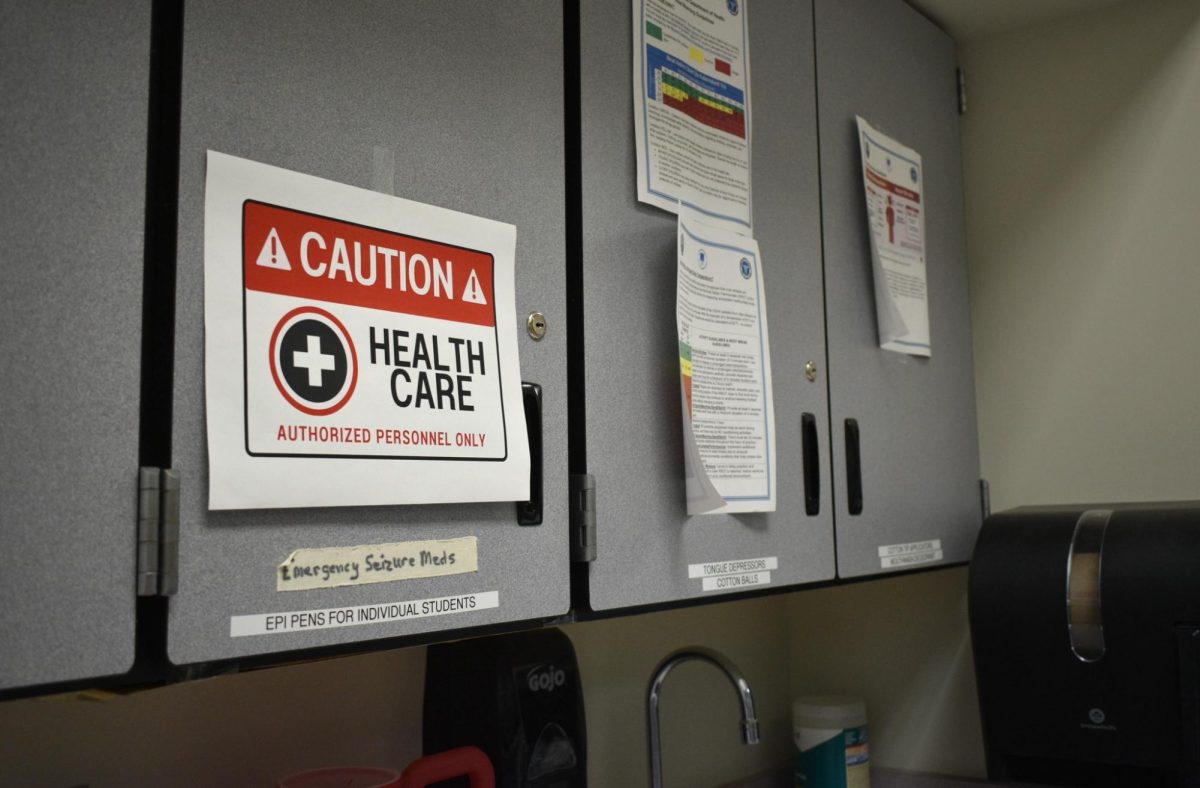
![Within the U.S., the busiest shopping period of the year is Cyber Week, the time from Thanksgiving through Black Friday and Cyber Monday. This year, shoppers spent $13.3 billion on Cyber Monday, which is a 7.3% year-over-year increase from 2023. “When I was younger, I would always be out with my mom getting Christmas gifts or just shopping in general. Now, as she has gotten older, I've noticed [that almost] every day, I'll open the front door and there's three packages that my mom has ordered. Part of that is she just doesn't always have the time to go to a store for 30 minutes to an hour, but the other part is when she gets bored, she has easy access to [shopping],” junior Grace Garetson said.](https://pwestpathfinder.com/wp-content/uploads/2024/12/DSC_0249.JPG-1200x801.jpg)
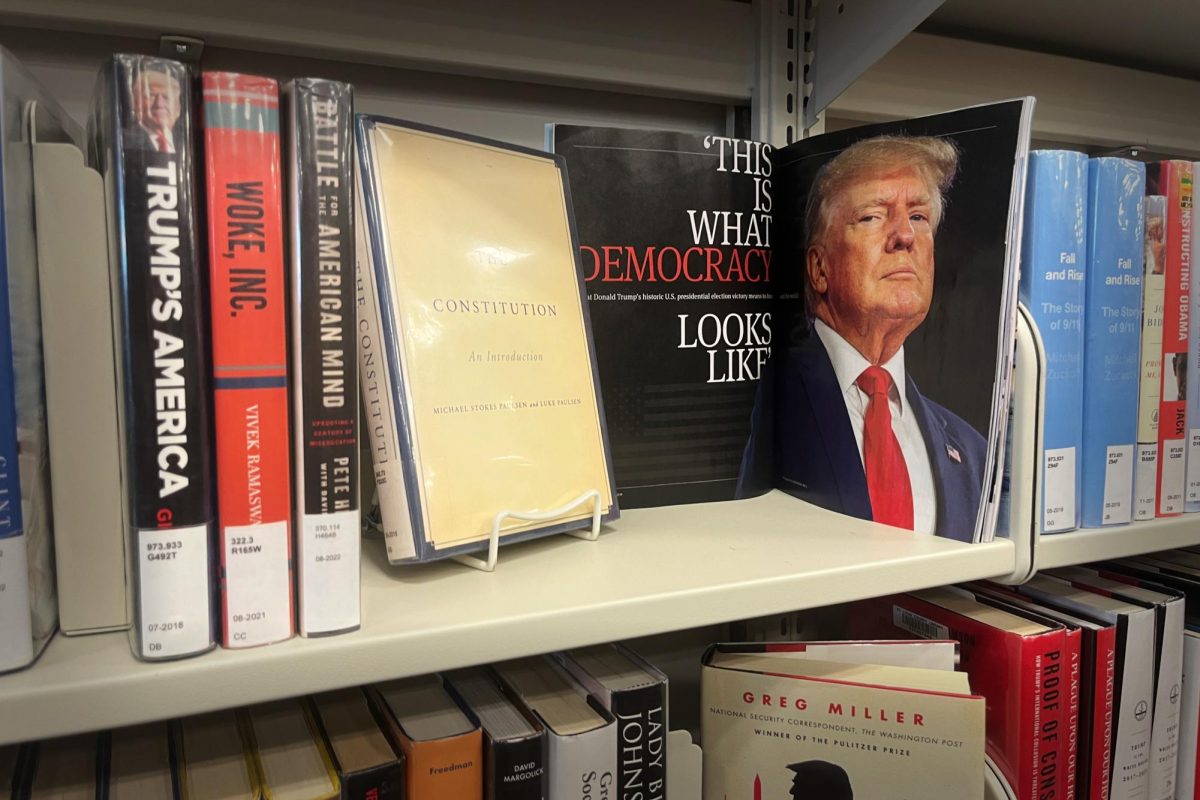
![Senior Sally Peters stands in the history hallway, contemplating her choices in the 2024 United States and Missouri elections on Nov. 5. As a member of Diplomacy Club, Peters has discussed key candidates and issues in contemporary American politics. “[As students], we're starting to become adults. We're realizing how much the policies that are enforced and the laws that make it through the House and Senate are starting to affect us. [Opportunities such as] AP [U.S.Government] and Diplomacy Club [make elections feel] a lot more real,” Diplomacy Club vice president and senior Nidhisha Pejathaya said.](https://pwestpathfinder.com/wp-content/uploads/2024/10/Flag-1-1.png)
![Mounting school pressure can leave many students overworked and overstressed. Schools must give students the necessary resources to help assuage student mental health issues and prevent the development of serious crises. “The biggest thing [schools] can do [to protect student mental health] is offer more time [to do work], like a study hall, or offer more support from teachers so that students don't feel stressed out and can get help in areas that they need,” senior Bhavya Gupta said.](https://pwestpathfinder.com/wp-content/uploads/2024/09/unnamed-4.jpg)
![Like many students, sophomore Medina Nanic experiences pressure to do well in school. Through continuous success and achievements, West has developed a high academic standard for students. “Because we’re seen as one [of] the better schools, we have higher standards than the [schools] who aren’t ranked as high. There’s a lot of pressure on students to do [well] and live up to those standards,” Nanic said.](https://pwestpathfinder.com/wp-content/uploads/2024/05/DSC_0029-2-1200x800.jpg)
![Junior Fiona Dye lifts weights in Strength and Conditioning. Now that the Trump administration has instituted policies such as AI deregulation, tariffs and university funding freezes, women may have to work twice as hard to get half as far. "[Trump] wants America to be more divided; he wants to inspire hatred in people,” feminist club member and junior Clara Lazarini said.](https://pwestpathfinder.com/wp-content/uploads/2025/05/Flag.png)
![As the Trump administration cracks down on immigration, it scapegoats many immigrants for the United States’ plights, precipitating a possible genocide. Sophomore Annabella Whiteley moved from the United Kingdom when she was eight. “It’s pretty scary because I’m on a visa. When my visa expires next year, I’m not sure what’s going to happen, especially with [immigration] policies up in the air, so it is a concern for my family,” Whiteley said.](https://pwestpathfinder.com/wp-content/uploads/2025/05/DSC_0077-7copy.jpg)
![Shifting global trade, President Donald Trump’s tariffs are raising concerns about economic stability for the U.S. and other countries alike. “[The tariffs are] going to pose a distinct challenge to the U.S. economy and a challenge to the global economy on the whole because it's going to greatly upset who trades with who and where resources and products are going to come from,” social studies teacher Melvin Trotier said.](https://pwestpathfinder.com/wp-content/uploads/2025/05/MDB_3456-1200x800.jpg)

![Pitching the ball on Apr. 14, senior Henry Wild and his team play against Belleville East. Wild was named scholar athlete of the year by St. Louis Post-Dispatch after maintaining a high cumulative GPA and staying involved with athletics for all of high school. “It’s an amazing honor. I feel very blessed to have the opportunity to represent my school [and] what [it] stands for,” Wild said.](https://pwestpathfinder.com/wp-content/uploads/2025/05/unnamed-6-1200x714.jpg)
![Freezing in their position, the Addams Family cast hits the “rigor mortis” pose after cast member and senior Jack Mullen, in character as Gomez Addams, calls out the stiff death move. For the past four months, the combined company of cast members, orchestra pit, crew and directors all worked to create the familial chemistry of the show. “I’m excited for [the audience] to see the numbers, the music, the scenes, but I also just love all the technical aspects of it. The whole spectacle, the costumes, makeup and the people that put in the work backstage in order to make the show successful on stage. I’m excited for people to see and appreciate that,” Mullen said.](https://pwestpathfinder.com/wp-content/uploads/2025/03/DSC0116-1200x800.jpg)
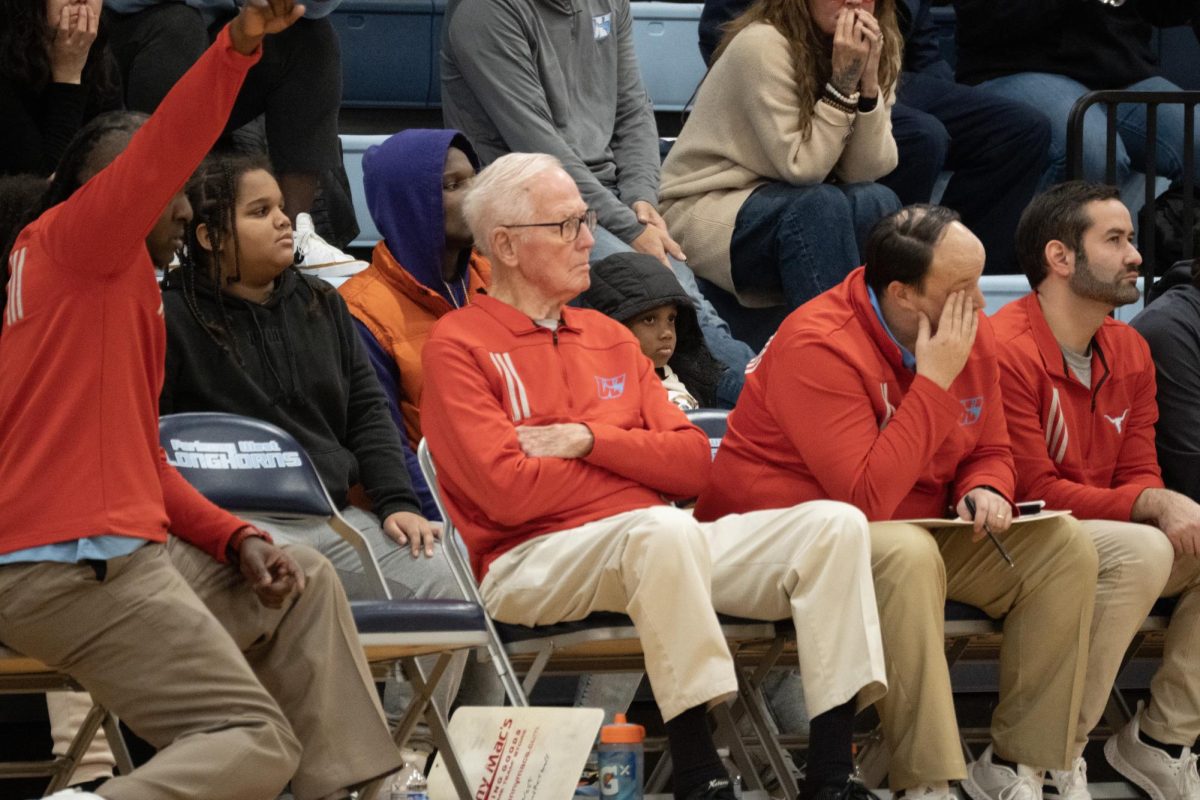
![Some of the most deadly instances of gun violence have occurred in schools, communities and other ‘safe spaces’ for students. These uncontrolled settings give way to the need for gun regulation, including background and mental health checks. “Gun control comes about with more laws, but there are a lot of guns out there that people could obtain illegally. What is a solution that would get the illegal guns off the street? We have yet to find [one],” social studies teacher Nancy Sachtlaben said.](https://pwestpathfinder.com/wp-content/uploads/2025/01/DSC_5122-1200x800.jpg)
![Complex global supply chains supply the goods for everyday luxuries, such as the coffee at West High’s Blue Brew. Low tariffs enabled much of the prosperity of modern history. “Higher tariffs lead to higher costs. A tariff is a tax on an imported good, and someone has to pay for that tax, and typically that [will] end up impacting consumers,” economics teacher Rachel Money said.](https://pwestpathfinder.com/wp-content/uploads/2024/12/Flag-1.png)
